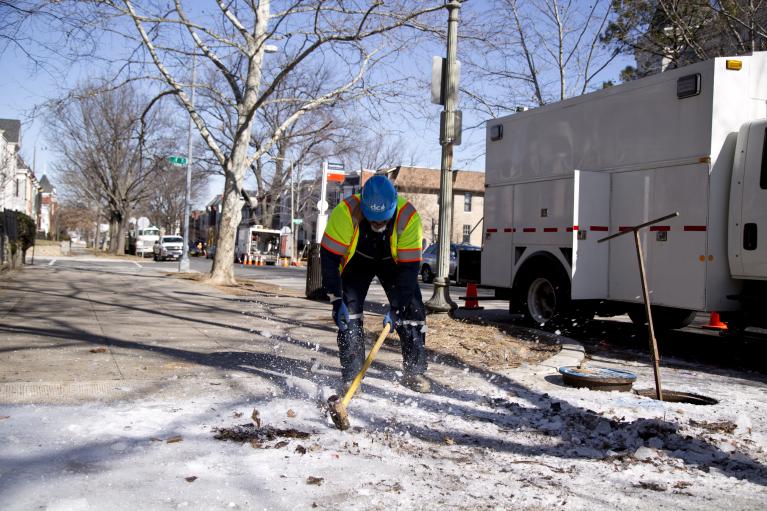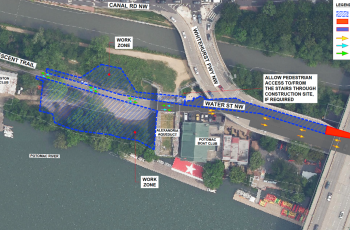DC Water reminds customers to prevent frozen pipes as winter storm moves into DC Region

Authority activates Winter Weather Plan ahead of deep freeze and heavy snow
DC Water has activated its Winter Weather Plan as a winter storm is expected to bring as much as a foot of snow and ice to the region. Temperatures have already plunged, with prolonged temperatures below freezing putting pipes in your home in jeopardy of freezing.
Before the storm, customers are encouraged to make sure valves are turned off to outdoor faucets, and to drain and disconnect hoses. Leave the outdoor faucets in the open position to ensure all excess water drains. Additionally, drip cold water from indoor faucets connected to pipes in exposed areas such as crawl spaces or attics.
In anticipation of the storm, DC Water readied crews, equipment, and facilities over the past few days. Water, pumping, and sewer operations sites have been pre-treated, snow and ice removal equipment mobilized, additional staff brought in, and other equipment and supplies pre-positioned to respond to any disruption to water service.
As a reminder customers can take the following steps to keep frozen pipes from breaking and causing damage to your home:
- Close valves to outdoor faucets
- Disconnect and drain outdoor hoses and leave the faucet on to allow any excess water to drip out
- In extreme temperatures let water drip from faucets connected to exposed pipes
If your pipes freeze, do not attempt to thaw them with an open flame of any kind. Instead, open faucets so that water will flow through the pipe once the area is melted. Gradually warm pipes and be careful not to use devices that will cause melted ice to boil as it could cause the pipes to break.
More tips to Protect Your Pipes from the Cold can be found at DCWater.com/cold-weather-pipes.
For an emergency inside your home, customers should contact a licensed plumber.
In the event DC Water offices are closed, the Authority’s 24-hour emergency hotline at 202-612-3400 will remain available for customers reporting a water emergency on public property.







